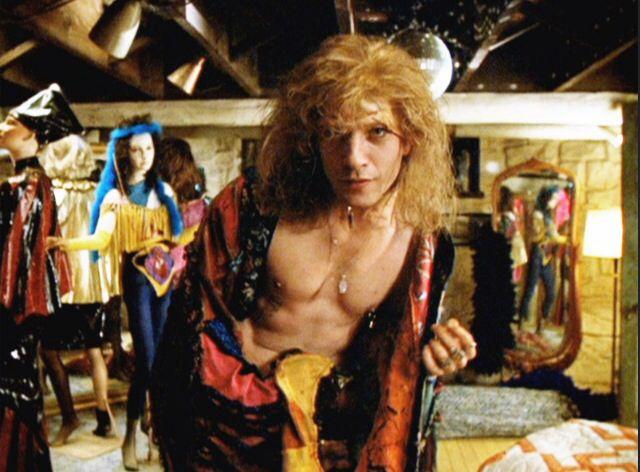-
News Feed
- EXPLORE
-
Pages
-
Groups
-
Events
-
Blogs
-
Marketplace
-
Offers
-
Jobs
-
Developers
Dressed For Success

I’ve never been a particularly big Harry Potter enthusiast, and I’m even more confused as to how Harry Potter became synonymous with social justice bullshit when the story’s centered around a regular British kid with no sexual or psychological dysfunction at a homogenous private school (seriously, how the hell did that happen?). But if nothing else I can appreciate the friction Rowling makes with the screeching lobotomites online. I wish a person’s belief in chromosomes wasn’t enough to make them sane, but such are the times.
Now you would think that the LGBTQRSTUVWXYZ^2 community would be titillated to have a crossdresser represented in this new Troubled Blood story. After all, everyone in that hemisphere of thought can never seem to shut up about how they aren’t put on display enough in media (even thought the media never seems to shut up about them). But there’s something, well, queer in regards to queer depiction in entertainment; and this is a separate point from the one I’ll make in a minute – you can never seem to get them right.
No matter how careful you are not to step on anyone’s toes (not sure why you’d want to do that), someone will find something wrong with your character: If they’re too effeminate or flirtatious, then you’re objectifying them. If they’re a walking gay stereotype floating around making noises, then you’re making a mockery of them. If your trans character is anything but a perfect paragon of…something ill-defined and ambiguous, then it’s wrong and you’re a bigot.
But this Denis Creed isn’t trans at all. He’s a crossdresser – and an apparently very effeminate one at that. Is that the problem? Some of you may ask, “hold on, what’s the difference between a dysphoric man who thinks he’s a chick and a dude with a thing for larping as a woman?” A question that someone with my background in the field of psychology ought to give a textbook answer to – but here’s this one instead: In this case, it is the proclamation of the character’s supposed self-identification that is the key here.
How could you tell, based on the description of a man who wears women’s clothing and who uses play-acted feminine whiles to charm his victims, whether he is trans or not? You couldn’t. There are straight, sex-affirming men who cross-dress. Their reasons may vary, but this is a fact. So the writer of this article isn’t upset at the denigration of the trans archetype, she’s upset that Denis Creed isn’t trans. Upset that a character with these quirks and tendencies isn’t represented as such.
Short Fat Otaku did a brilliant analysis on this sort of thing back in January. About how the social justice types will through their full weight being anyone and anything supposedly trans, regardless of how diabolic their actions. Check it out here.
I’m trying not to talk in circles here, but let’s harken back to my point about how you can never please the mob with any depiction of a trans person. How often do you see people with other mental health issues “represented” in media? Like say, people with mental retardation? Not very often. Do you know why? Because, regardless of what light they are framed in, it’s considered offensive. Yes, by some contortion of logic, the mere presence of a retarded person in media is derogatory and meanspirited to retarded people. Kind of fucked up when you really think about. But, if this is the general consensus, that people with mental issues need to be hidden away, why would that same standard not apply to individuals that have salient despondency between their identity and their sex? When you look at it that way, it’s really no surprise why all but the most left-wing media outlets even attempt to create such characters – it doesn’t go over well.
The controversy surrounding Rowling as an idolized figure that doesn’t fit the current mold of today’s feral dogma is hardly a unique one. If more people bothered to dig into the personally held beliefs of, say, Planned Parenthood founder Margret Sanger or their beloved Karl Marx, then they might suddenly realize why clinics are put where they are and why people who’ve fled from failed communist states are their staunchest supports. But that’s a big ask.
We are 100% funded for October.
Thanks to everyone who helped out. 🥰
Xephula monthly operating expenses for 2024 - Server: $143/month - Backup Software: $6/month - Object Storage: $6/month - SMTP Service: $10/month - Stripe Processing Fees: ~$10/month - Total: $175/month
- Art
- Causes
- Crafts
- Crime
- Dance
- Drinks
- Film
- Finance
- Fitness
- Food
- Games
- Gardening
- Health
- Home
- Literature
- Music
- Networking
- Paranormal
- Other
- Politics
- History
- News
- Party
- Science
- Religion
- Shopping
- Sports
- SyFy
- Politically Incorrect
- Philosophy
- Theater
- Technology
- Wellness



